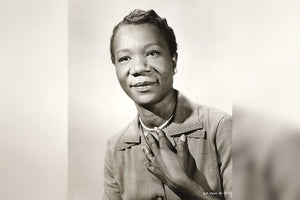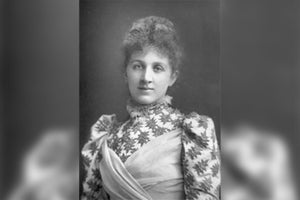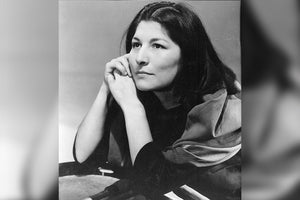Birthday July 16
Who was Ida B. Wells?
Ida B. Wells was an African American investigative journalist, teacher, and an early leader in the civil rights movement who led an anti-lynching crusade in the United States in the 1890s.
Five Facts about Ida B. Wells:
Born into slavery
Freed by the Emancipation Proclamation at 6 months old
Published articles under the pseudonym “Lola”
Helped found the National Association for the Advancement of Colored People (NAACP)
Fought for women’s suffrage
Inspirational Quotes from Ida B. Wells
“One had better die fighting against injustice than to die like a dog or a rat in a trap.”
“The way to right wrongs is to turn the light of truth upon them.”
“Burning and torture here lasts but a little while, but if I die with a lie on my soul, I shall be tortured forever. I am innocent.”
“Virtue knows no color line, and the chivalry which depends upon complexion of skin and texture of hair can command no honest respect.”
“Eternal vigilance is the price of liberty, and it does seem to me that notwithstanding all these social agencies and activities there is not that vigilance which should be exercised in the preservation of our rights.”
Ida B. Wells Biography
Early Life
In 1878, Ida lost her parents and youngest sibling to a yellow fever outbreak in Holly Springs, Mississippi, leaving her and her five remaining siblings orphans. As the oldest, she took responsibility for raising her brothers and sisters and pursued a job as a teacher in order to support her family.
Husband and Children
Ida B. Wells married her husband, Ferdinand L. Barnett in 1895. They had four children together - Charles, Herman, Ida Jr., and Alfreda. Later, they became grandparents to a total of seven grandchildren and 20 great-grandchildren.
Turning Point
While riding on a train from Memphis to Nashville in May 1884, Ida reached a turning point. She had purchased a first-class ticket, but was told to move to the “Jim Crow” car for black passengers, in spite of the 1875 Civil Rights Act which banned discrimination. She refused on principle, but was forcibly removed from the train. Though she sued the railroad and won a $500 settlement in a circuit case court, the Tennessee Supreme Court overturned the case citing “disruption of other passengers.”
Mission and Work
In the 1890’s, Ida launched an anti-lynching crusade after three of her friends were lynched for violating the strict social conduct codes. Among other things, she led a protest through Washington D.C. and called for the president to make reforms. In 1893, she researched an d published A Red Record, which is a personal examination of lynchings in America.
Through her writing, she fought against the injustices and prejudices of her time. This crusade makes her a prominent figure of the early Civil Rights Movement. Later in 1909, she helped to establish the National Association for the Advancement of Colored People (NAACP) in her fight for equality.
As a writer and publisher, she did not shy away from controversial subjects. She wrote under the penname “Lola.” She also became an owner of two newspapers: The Memphis Free Speech and Headlight and Free Speech, giving voice to important topics in her time, but when an editorial piece angered the local white population, a mob stormed her newspaper office and destroyed all of her equipment.
Throughout her life, she also spoke up for women’s suffrage, especially black women. She became involved in the National Equal Rights League and called for the president to put an end to discriminatory hiring practices in government jobs. As a black teacher, she had felt the sting of wage discrepancies and this spurned her on in her mission to fight for black women’s rights.
On January 30, 1913 Ida founded the Alpha Suffrage Club in Chicago. This club organized women in the city to help elect candidates who would best be able to serve the black community. As president of this club, she was invited to march in the 1913 Suffrage Parade in Washington, DC along with dozens of other club members. The organizers of the parade were afraid of offending Southern white suffragists and asked the club members to march only at the back of the parade. Ida, herself, refused, and stood on the parade sidelines until white suffragists passed, at which point she then joined the march.
Death and Legacy
At the age of 68, Ida died of kidney disease on March 25, 1931 in Chicago, having left behind a legacy of social and political activism for which she will always be remembered.
In 2020, Ida B. Wells was awarded a Pulitzer Prize "for her outstanding and courageous reporting on the horrific and vicious violence against African Americans during the era of lynching."
![]() Fast Shipping
Fast Shipping![]() Subscribe to our Newsletter
Subscribe to our Newsletter![]() 🌟 New Global Competition 🌟
🌟 New Global Competition 🌟















